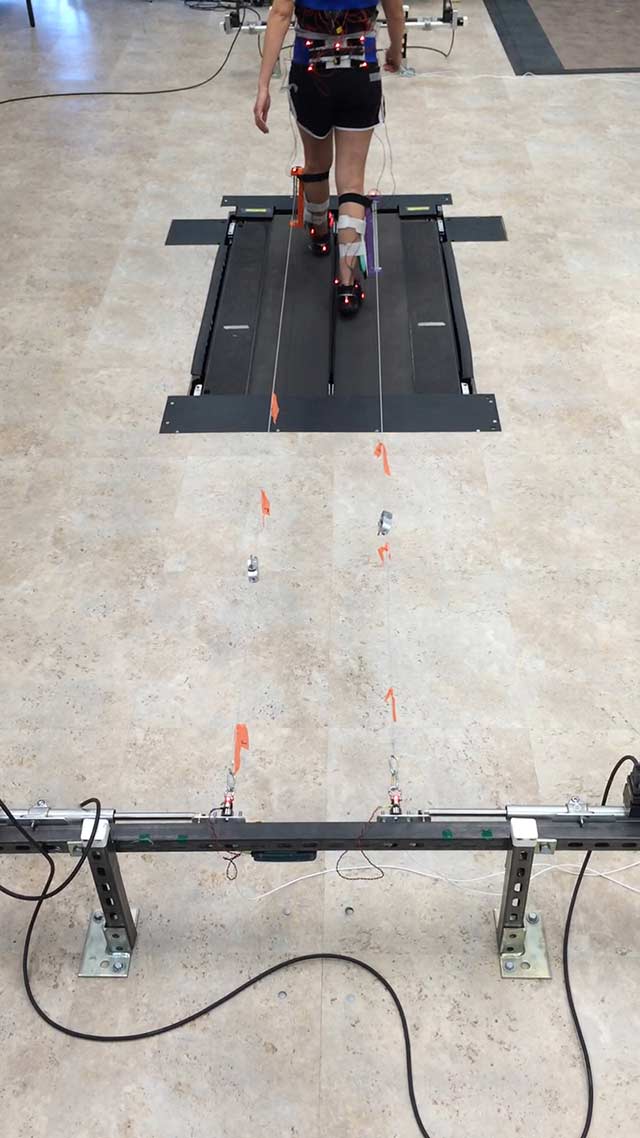Research Focus on Dr. Jesse Dean
Most citizens of South Carolina know someone whose life has been affected by a stroke. Improvements in medical care have helped to reduce the negative consequences of a stroke, but many stroke survivors still experience significant reductions in functional mobility. A major factor contributing to this reduced mobility is poor balance, as many stroke survivors experience falls or have a fear of falling. Unfortunately, existing rehabilitation methods have largely been unable to restore post-stroke balance.
For individuals with good balance, walking can seem to occur almost automatically. In reality, people subconsciously make continuous adjustments to where they place their feet in order to remain balanced. After a stroke, many individuals with poor balance lose this ability to accurately control their foot placement. At the Medical University of South Carolina (MUSC), Dr. Jesse Dean and researchers have developed a training device able to provide step-by-step guidance of foot placement. This device may have the potential to help retrain the normal balance strategy, and has shown promising short-term effects among stroke survivors.
A project funded by the National Science Foundation is investigating how to optimally control the novel training device in order to produce sustained effects on users, as well as how to move the underlying technology out of the laboratory and into the clinic. To meet these translational goals, the project involves engineers, scientists and clinicians, as well as students from Clemson University, the College of Charleston, and MUSC.
Project Title: Development of a Novel Rehabilitation Device for the Improvement of Gait Stability. Click here to read the NSF Project Abstract.
Click download PDF of Research Focus on Dr. Jesse Dean
July 11, 2017